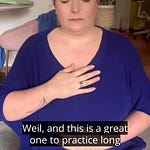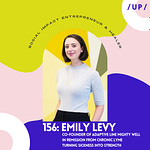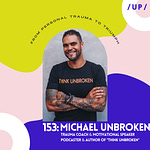Jennifer White-Johnson is a designer, photographer, art activist, and art educator. Her work focuses on the intersection of content and caregiving with an emphasis on redesigning ableist visual culture. In this interview, Jen shares her experience living with Graves’ disease and undiagnosed ADHD, as well as her son’s diagnosis of autism at age 2. When Knox was diagnosed on the spectrum, Jen began to examine the absence of Black disabled children in digital and literary media. This motivated the release of an advocacy photo zine entitled KnoxRoxs, which was intended to give visibility to children of color in the Black autistic community. Since its release, the zine has received national and international recognition, including features in AfroPunk and The 2019 Women’s March on Washington; it is also permanently archived in libraries at the The Metropolitan Museum of Art and the National Museum of Women in the Arts. As we discuss on the show, Jen believes that true allyship can only come from designing with the disability community in mind. As designer of the #BlackDisabledLivesMatter symbol (available as a free download on her website at jenwhitejohnson.com), her recent work has been instrumental in reigniting much-needed dialogue about disability justice within the Black disabled community, helping to shift stigmas while aiming to eradicate racist and ableist media. Jen’s mission, in her words, is to reimagine “Mothering as an act of Resistance”, redesigning ableist visual culture by “encouraging communities to engage in conversations about acceptance, rooted in how Black Neurodivergent children are valued and seen.”
Tune in as Jen shares:
how Knox was diagnosed with autism — and how his family views his disorder as natural, and embraces his needs
how Jen and her husband have been sure to monitor Knox’s needs and environments so he can thrive
how Jen created the first zine to support Knox — as a fun guidebook for his teachers
that Jen has sought Black joy in autism, and uses design to demonstrate it
how she supports her neurodivergent students at Bowie State University
how she has created structures to support Knox and accommodate his needs
how Knox’s Blackness intersects with his disability from a healthcare and human perspective
a discussion of the injustice of racial discrimination and inherent bias — and why Jen has intentionally created a safe space for Black disabled individuals and caregivers to occupy
how Jen works with her community to keep Knox safe as a Black autistic child
why she has Knox registered with the local police in her area
how she was diagnosed with Graves’ disease at 21, and was given radioactive iodine treatment to effectively “kill off” her thyroid
how little guidance she was given for her long-term health after her own diagnosis
that art is a form of self-care for her — and for Knox
what intersectional allyship really looks like
how she plans to work toward an official diagnosis of ADHD
where you can get your free printable #BDLM images, and how her design has swept the world in community protest














Share this post